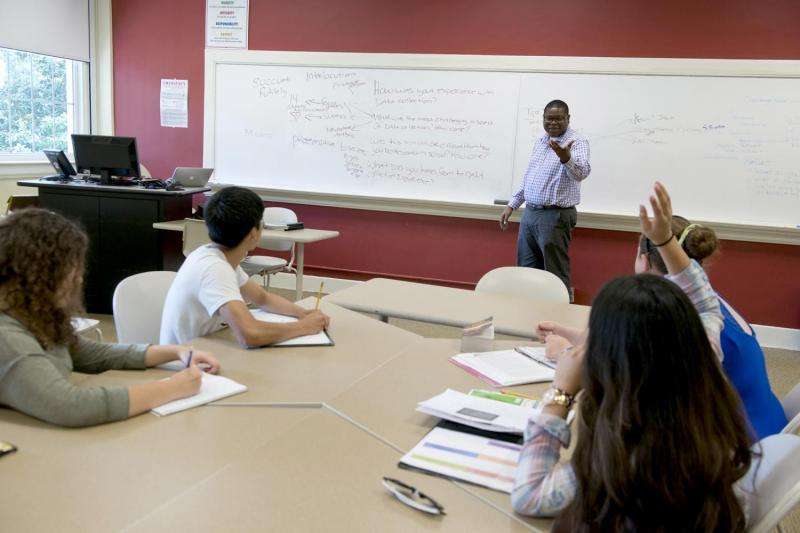Rural location, race influence students' access to college

Students from rural communities who want to attend college face challenges on their pathways to higher education, according to a new study from a University of Georgia researcher.
Not only does location affect whether a student enrolls, but race plays a role as well, said Darris R. Means, an assistant professor in the UGA College of Education. With about 580,000 students in rural schools across Georgia-and nearly 40 percent students of color-this can have a tremendous effect on college access, Means said.
"Usually, particularly when we're talking about students of color, people consider the urban context. But when we don't think about this intersection of rurality and race, we overlook a lot of youth on their pathways to higher education," said Means, whose study was recently published in the journal The Review of Higher Education. "I think people of color in rural communities are often overlooked when it comes to educational policies, practices and programs, especially compared to urban and suburban settings."
For the study, Means and colleagues interviewed African-American high school students and staff members in a rural Southeast high school about their impressions of college access. Many students had parents, teachers, coaches and school counselors who pushed them to go to college, but this encouragement was tempered by a lack of resources. For example, students overwhelmingly felt that they had encouragement and support to go to college, yet didn't have access to academically rigorous classes or enough one-on-one time with a counselor to get help with the college admission process-a task that can seem daunting, especially to a first-generation college student.
Also, students at the rural high school said they felt motivated to go to college, but felt constrained by geography-pressure to attend a school closer to home for family reasons-or felt out of place when visiting a campus lacking diversity. These are issues colleges should address in their outreach to rural areas, Means said.
"There are several implications for this study. First, colleges and universities, especially the most selective institutions in a state, have an opportunity to think about ways to recruit students from rural communities and enhance programs and services to retain rural students," Means said. "Second, educational leaders and state policymakers must consider how resource allocations affect rural students of color and their educational experiences.
"For us to understand how to support all youth, we have to look at this intersection of race and rurality."
Provided by University of Georgia

















